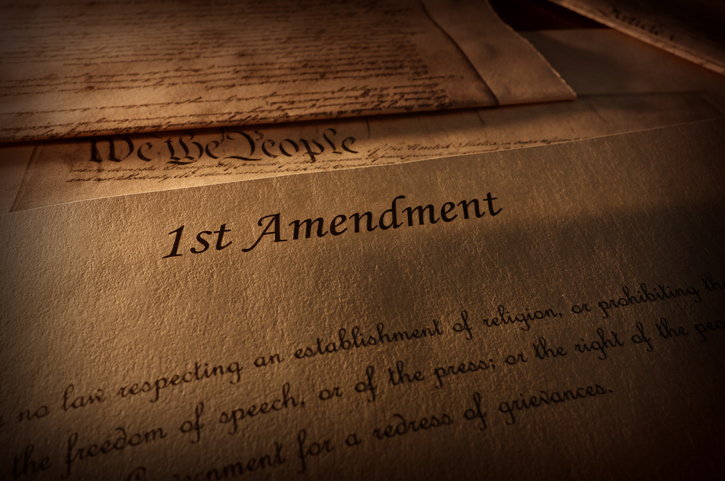
The U.S. Supreme Court is scheduled to hear another important First Amendment case in early December, and the experts are saying the Court’s decision in this case could well complete the job of allowing churches and their schools and other affiliates to participate fully in government grant and subsidy programs.
As Church Executive readers might recall, we have been paying attention to the Supreme Court’s recent decisions on this important topic with the assistance of our own go-to expert, Kimberlee Norris of the Love & Norris firm in Fort Worth. The new case is Carson v. Makin, which has been set for oral argument on December 8, with the expectation that a decision will be handed down in the Spring or perhaps not until the very end of the Court’s term in late June if — as perhaps wouldn’t surprise anyone — there are multiple opinions included in the Court’s decision as the various Justices and their disparate views peel back the layers of onion skin on this challenging issue.
Whatever the timetable, we’ll hope to get Kimberlee’s analysis when the case is decided — and, importantly, her take on how the decision will impact the ability of churches to participate in government grant and other programs.
As always, Amy Howe at ScotusBlog has come up with a helpful plain-English description of the issues raised by Carson v. Makin. Set against the two other Supreme Court cases Church Executive has profiled on this topic (Trinity Lutheran Church vs. Pauley and Espinoza v. Montana Department of Revenue), a key issue to be decided by the Supreme Court in Carson is whether the use of government funding by a church school or other church affiliate can be a basis for disqualifying its participation in the program. Here are the facts and the issue to be decided:
Maine — like a number of states and counties — provides funding for students to attend private schools where there aren’t local public schools available. However, the Maine program only allows its funding to be used to attend a “non-sectarian” school, and the lower courts in Carson held that this limitation was correct and Maine could properly disallow funding to attend a school where religious instruction is an integral part of the curriculum. Trinity Lutheran and Espinoza had already made it clear that government funding can’t be denied to a church school solely because of its religious affiliation, as the Free Exercise Clause of the First Amendment requires government programs to be available to church affiliates on an equal footing with non-religious organizations.
However, those two decisions left open the issue of whether the use of government funding for religious instruction or other “sectarian” purposes would allow or even require a different result under the Establishment Clause because that Clause prohibits governmental support or “establishment” of religion. To put it bluntly, and using an example from Church Executive’s earlier articles, if one student wanted to use a government tuition grant to attend Notre Dame and another wanted to use it to go to seminary, should both students qualify or just the first? Carson could provide the answer.
Probably a key side-question is whether the Supreme Court’s decision in Carson will lay down a broad principle or just a narrow one. A broad ruling would say, willy-nilly, that a state or local government must or must not pay attention to how a program’s funding gets used, while a narrow and facts-of-the-case ruling would delve into the details of the Maine circumstances and either reverse or affirm the lower court’s decision based on the particular circumstances of the case, leaving it up in the air where the dividing line falls and making it clear that different facts in a different case would support a different result.
Some of the “talking heads” are predicting that the new “conservative” majority on the Court will jump at the chance to flex its muscles and issue a broad ruling which affirms the right of churches and church affiliates to full-blown participation in all government funding programs on the ground that any restriction — whether based on use or otherwise — is inconsistent with the Free Exercise Clause.
Others are predicting that Chief Justice Roberts and other Justices will prevail with the view that a narrow, facts-of-the-case decision is better lest a broad fiat open the courts to difficult predicaments down the line when cases are presented where the facts are extreme. In Court-speak (echoing what Roberts said in his majority opinion in Espinoza), it continues to be appropriate to use a case-by-case approach here and say that a government program which treats a religious organization differently from a secular organization is subject to the “strictest scrutiny” and will be allowed to stand only if there is a “compelling government interest” (such as a direct sponsorship or “establishment” of religion) justifying the different treatment.
In other words, it will be tough to justify treating churches and their affiliates differently, but not impossible.
We’ll leave this up to a later article when the Carson decision is handed down and we have the benefit of Kimberlee’s analysis and expertise. One thing is sure, though: Carson is likely to be as important as Trinity Lutheran and Espinoza — maybe even more important — in fleshing out the ground rules for churches and church affiliates to participate in government programs.
It seems only right that their participation ought to be without interference except, perhaps, in the most extreme situation where participation would involve the government in the direct (as opposed to incidental or indirect) subsidy or “establishment” of religion.
As government budgets and programs have been cut back, and churches and church affiliates have increasingly been called upon to fill the vacuum, that right answer seems even more compelling.
Or at least, that’s how we Church Executive editors see it.


